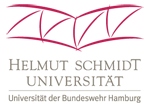

23rd International Conference on Multiple Criteria Decision Making MCDM 2015 - Bridging Disciplines
August 2nd–7th, 2015, Hamburg, Germany
|01.10.2015|
The submission deadline for the Special Issue of the Computers and Operations Research Journal on "Evolutionary Multiobjective Optimization" has been extended to October 15, 2015.
|24.08.2015|
Now the Book of Abstracts can be downloaded. Also a short program is available. Note that each document will be provided in a printed version at the conference.
|13.08.2015|
The photos of the scientific and the social program can be downloaded here.
|31.07.2015|
The Master Track Schedule (also provided in a printed version) and the Session Chair Instructions can be downloaded.
|09.07.2015|
The public transportation ticket will be sent to registered participants who have pre-paid the conference fee by 27th of July at the latest.
|08.07.2015|
The final timetable is online.
|04/2015|
Conference registration opens.
|04/2015|
Apply for free voucher codes for traveling to Hamburg with FlixBus.
|03/2015|
Update on the social program.
Subset Selection in Evolutionary Multiobjective Optimization
Carlos M. Fonseca
CISUC, Department of Informatics Engineering, University of Coimbra
Polo II, Pinhal de Marrocos, P-3030 290 Coimbra, Portugal
The potential of evolutionary algorithms in multiobjective optimization was identified early in their history. That potential has been realized over the years with the development of increasingly elaborate Evolutionary Multiobjective Optimization (EMO) algorithms that have found many important applications in the real world, and have contributed significantly to the growth in popularity of multiobjective optimization in general.
Although EMO has traditionally emphasized the approximation of the whole Pareto-optimal front in an a posteriori articulation of preferences setting, preference-driven EMO algorithms capable of handling interaction with a Decision Maker (DM) were proposed early in their development. While the identification of a most preferred solution is usually seen as the ultimate goal in practice, recognizing that the search for diverse sets of alternative solutions to be presented to the DM (whether in a progressive or an a posteriori articulation of preferences scenario) implies some sort of set-oriented preference for diversity has been a turning point in EMO algorithm development. State-of-the-art algorithms such as IBEA, SMS-EMOA, MO-CMA-ES and HyPE, for example, implement multiobjective selection based on a notion of set quality that is then used to infer the quality of the individuals in the population and to introduce bias towards the better ones at the parental and/or environmental selection stages. However, the issue of how to combine such set-oriented preferences with the more traditional search for a single most-preferred solution remains largely open.
This talk focuses on the problem of selecting a diverse subset of non-dominated solutions from a larger set of candidate solutions according to DM preference information. The expression of set-oriented preferences by the DM, their incorporation in EMO algorithms, and computational aspects of the resulting subset selection problems are considered. Existing quality-indicator and decomposition approaches are reviewed and discussed, and an alternative perspective is introduced where set quality is not specified by the DM as such, but is inferred from the uncertainty associated with DM solution-oriented preferences instead. Recent results obtained by instantiating this idea in the form of a portfolio optimization problem are presented and discussed, and opportunities for further work are outlined at the end.




